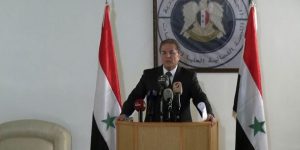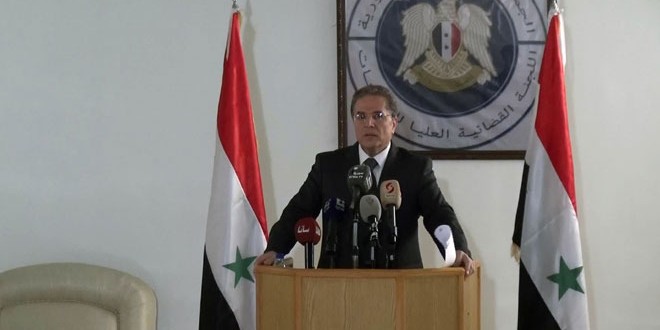 Syrians in government controlled areas went to the polls Wednesday to elect 250 lawmakers among more than 3500 candidates.
Syrians in government controlled areas went to the polls Wednesday to elect 250 lawmakers among more than 3500 candidates.
Chairman of the Higher Judicial Committee for Elections (HJCE) Hisham Shaar had said that international observers and media would not be barred from covering and monitoring the electoral process as long as their respective activities have been approved by the foreign ministry for the observers or the ministry of information for the media outlets.
Aspiring members of parliament campaigned from March 14 to April 12 to be elected to the country’s unicameral legislature; the People’s Assembly. Foreign minister Waid Mualleh said in March that the elections will have “no impact” on the UN-led talks.
Information minister Omran al-Zoubi in an interview aired on state TV on the eve of the parliamentary elections reiterated similar remarks as he termed the electoral process to be a constitutional requirement that must be respected. He said the constitution will be amended if an agreement for a political transition is reached with the rebel groups which will also involve expanding the capacity of the government.
“We want the (UN-led) political process to succeed, and the success of this process might entail in one day to meet directly in negotiations and it may not, but if it does, there must be preludes.” He however highlighted that the U.N must work towards unifying the opposition forces because there are information regarding differences and disagreements in their ranks.
President Assad announced the elections on February 22 through a presidential decree and told Sputnik on March 30 that he was not expecting major changes in the parliament after the elections.
